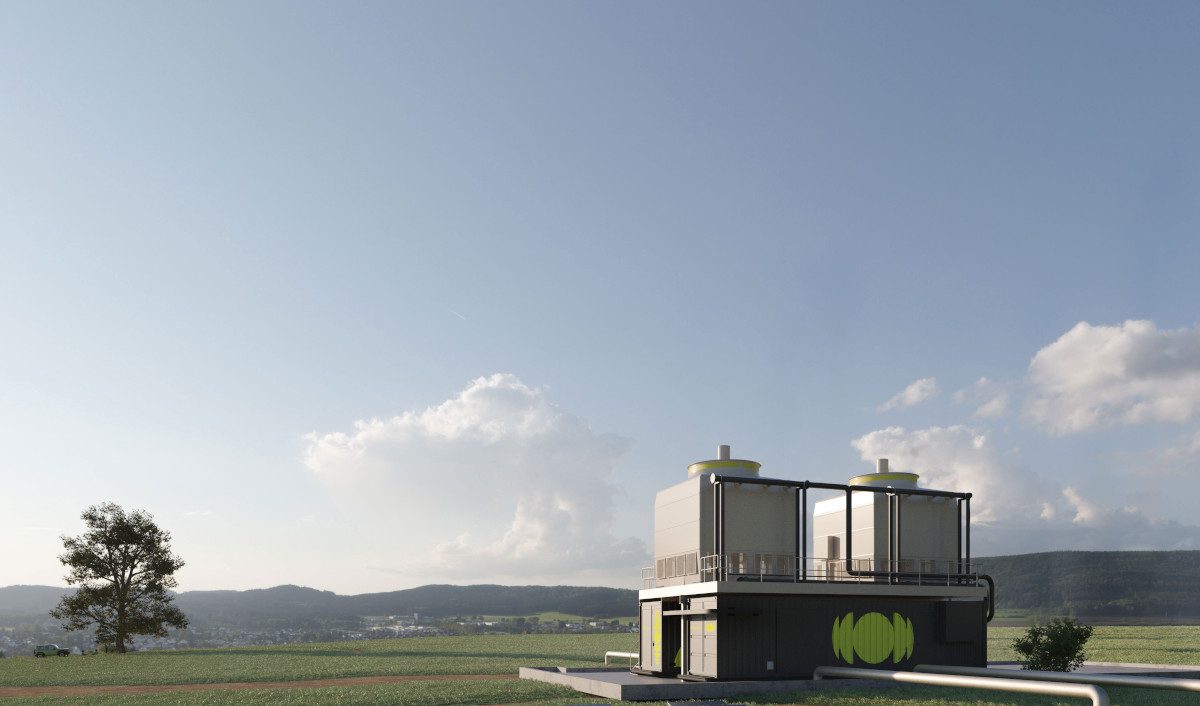
The startup behind the UK’s first commercial direct air capture (DAC) plant has begun delivery of its first international project, at an installation in Alberta, Canada.
Mission Zero Technologies (or ‘MZT’) announced the delivery and installation of their third modular system at partner Deep Sky’s carbon removal innovation and commercialisation centre, Deep Sky Labs, in Innisfail, Alberta, on 14 October.
Powered entirely by renewable solar energy, Deep Sky will use MZT’s electrochemical system to efficiently recover atmospheric carbon dioxide for permanent storage underground. The project is described as an important milestone – for both the DAC and carbon removal industries, and for the global fight against the climate crisis.
The Deep Sky project is the third deployment of MZT’s technology, the first being Sheffield University’s TERC site, which creates sustainable aviation fuel and is also the UK’s first commercial DAC facility. The second is OCO in Norfolk, which will turn atmospheric emissions into carbon-negative limestone for building materials (read more here).
As owner and operator of the Alberta project, Deep Sky will validate some of the most promising DAC innovators on site, including MZT’s system, which is capable of recovering up to 250 tonnes of CO2 each year. Deep Sky as a whole aims to remove between 100,000 and one million tonnes annually once the project moves from scale-up pilot to fully operational plant.
Mission Zero Technologies’ approach centres around a modular, platform system harnessing existing mature technologies and supply chains, allowing for reliability and scalability – anywhere and for any industry. This approach underscores both the deployability of MZT’s tech and the company’s ability to quickly scale commercial DAC – with the system for Deep Sky progressing from contract to delivery and installation in just 12 months.
To support green skills and local economies, and strengthen supply chain sustainability, each of MZT’s first-of-a-kind systems have strategically sourced components through different suppliers – supporting local economies and suppliers without impacting cost, performance, or speed to market.
As the first plant to operate in sub-zero temperatures, this deployment further enriches the startup’s growing database of real-world performance data of its tech, gathered in diverse climates and industrial contexts. Accessing reproducible in-the-field data is essential for rapid optimisation, shown by the over 60% reduction in levelised cost of this system compared to Mission Zero’s first deployment in Sheffield, UK in December 2023. It’s also key to proving viability and securing the project financing and future investment needed to scale.
Dr Nicholas Chadwick, co-founder and CEO of Mission Zero Technologies, comments: “Deep Sky Labs, as a project validating some of the best startups in the DAC industry, is a vital milestone for the carbon removal industry. It will show that DAC tech, when done effectively, is commercially viable and an essential tool in our fight against the climate crisis.
“This will be Mission Zero’s third installation – providing more proof that a modular design, using proven components and established supply chains, is the best approach for delivering impactful climate technologies at pace. Once operational, this system will add to the huge amount of data we are collecting – which is vital for rapidly optimising our solutions, and proving to investors and policymakers that they work.”







